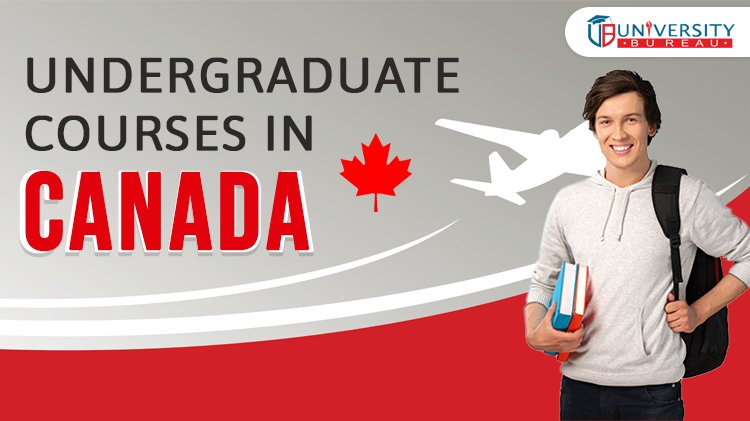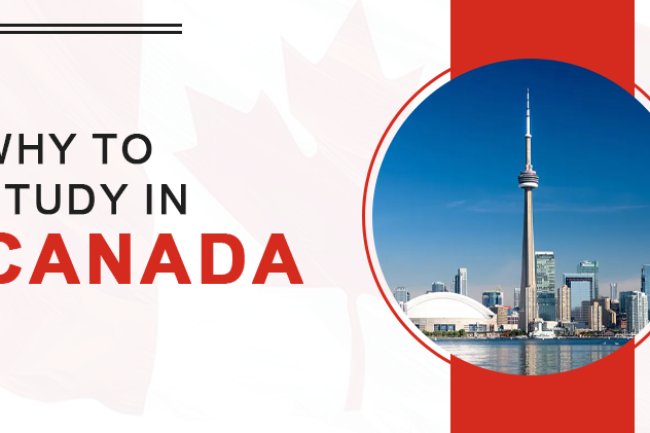Undergraduate Courses In Canada
Explore a wide range of undergraduate courses in Canada designed for international students seeking quality education and global opportunities. Choose from diverse fields, including engineering, business, health sciences, arts, and more, offered by top Canadian universities known for academic excellence and research innovation in 2024.

International students who wish to pursue undergraduate degrees to Study in Canada have a fantastic opportunity to do so in a lively, multicultural atmosphere. Canada has grown to be a well-liked study abroad destination for undergraduates thanks to the variety of fields and institutions available. We will give a thorough review of undergraduate programs in Canada in this blog, outlining important details such as program possibilities, admission standards, and advantages of studying abroad.
Program Options:
Canada provides a wide selection of undergraduate programs in a number of subject areas. Students have a wide range of options when choosing their ideal program, ranging from business and engineering to humanities, sciences, arts, and technology.
Duration of Undergraduate Programs:
For a bachelor's degree, undergraduate programs in Canada normally last four years. However, a year or two more of study may be necessary for some professional programs, like engineering or architecture.
Admission Requirements:
Depending on the institution and the particular program of study, different undergraduate programs have different admission requirements. Students must typically have finished their secondary education, or its equivalent, and adhere to the minimum grade point average (GPA) requirements or other academic standards established by the university or college.
Language Proficiency:
International students who do not speak English or French as their first language are typically required to take standardized examinations like the TOEFL or IELTS to demonstrate their language skills. The required minimum score varies depending on the institution and program.
Application Process:
Students who wish to apply for undergraduate programs in Canada must do so either directly to the university of their choice or through a centralized application process like the Ontario Universities' Application Centre (OUAC). Letters of recommendation, a statement of purpose, academic transcripts, and occasionally a personal interview are all often required throughout the application process.
Tuition Fees and Scholarships:
In Canada, undergraduate tuition fees are determined by the institution, the program, and whether the student is a Canadian citizen or an international student. In comparison to domestic students, international students can anticipate greater tuition costs. To help international students financially, Canadian universities and colleges also provide a variety of scholarships, grants, and bursaries.
Co-op and Internship Opportunities:
For students to get real-world work experience in their field of study, many undergraduate programs in Canada provide co-op or internship options. These work-integrated learning opportunities offer beneficial exposure and improve graduates' employability.
Education Standards:
Canada is famous for having high academic standards and demanding curricula. Canadian colleges and universities are renowned for their emphasis on research, cutting-edge infrastructure, and highly trained faculty, ensuring that students obtain an excellent education.
Multicultural Environment:
Studying in Canada provides a distinctive opportunity to explore a multicultural environment. Students have the chance to engage with various cultures, broaden their horizons, and form enduring friendships with other students from around the world.
Student Support Services:
The success and welfare of students is a top priority for Canadian universities. To improve the entire student experience, they offer a wide range of support services, including academic advising, career counselling, health services, and numerous student clubs and organizations.
Research Possibilities:
Canadian undergraduate students have access to a wide range of research possibilities, enabling them to take part in cutting-edge research initiatives and collaborate with eminent experts in their specialties. Safe and Inclusive:
The surroundings of The friendly and inclusive culture of Canada is well-known. The nation places a high priority on providing an atmosphere that is safe and encouraging for overseas students in order to ensure their well-being and absorption into the local culture.
Pathways to Permanent Residency:
In order to make it easier for immigrants to move from studying to working and eventually acquiring permanent residency, Canada offers a number of immigration programs. Canadian graduates may be qualified to apply for post-graduation work visas and other immigration routes.
Conclusion:
Starting a university career in Canada provides access to a strong educational environment, cultural variety, and a wealth of chances. Canada continues to be a top choice for international students looking for a top-notch education because of its world-class institutions, friendly atmosphere, and selection of program alternatives. We hope that this thorough guide has given you insightful information regarding undergraduate programmes in Canada, enabling you to make an educated choice about your academic path.
FAQs
1. What do undergraduate courses entail?
After completing high school but before pursuing a graduate or professional degree, students enrol in undergraduate studies.
2. How long does a normal undergraduate course last in Canada?
For a bachelor's degree, the majority of undergraduate programmes in Canada last four years, while other programmes may be shorter or longer depending on the topic of study.
3. Do Canadian undergraduate programmes come in a variety of forms?
Yes, Canada provides a wide variety of undergraduate programmes, including bachelor's degrees in the arts, sciences, business, engineering, and many more.
4. What criteria must applicants meet to enroll in undergraduate programmes in Canada?
Depending on the institution and programme, different qualifications are needed for admission. Students typically have to submit their academic transcripts, evidence of their language skills, letters of recommendation, and a personal statement.
5. In Canada, are English language skills a requirement for undergraduate studies?
Yes, overseas students whose native tongue is not English are frequently asked to demonstrate their fluency in the language through exams like the TOEFL or IELTS.
6. Are there any scholarships available in Canada for undergraduate students?
Yes, scholarships, grants, and bursaries are provided by Canadian universities and colleges to local and foreign undergraduate students based on academic achievement, financial need, or other factors.
7. Can I work in Canada while I'm an undergraduate student?
Yes, international students who have a current study visa are allowed to work part-time on or off campus while they are enrolled in classes.
8. Are there any co-ops or internships available in Canada for undergraduate students?
In Canada, many undergraduate programmes provide co-op or internship options, giving students useful work experience in a related sector.
9. How much do overseas students pay for undergraduate tuition in Canada?
The cost of tuition for international students varies by institution and programme. International undergraduate tuition costs typically vary from CAD 15,000 to 40,000 per year.
10. Can I use my past academic credits for a Canadian undergraduate programme?
Depending on their policies and how closely the courses are related, several Canadian schools may accept transfer credits from prior coursework.
11. Are there any undergraduate research opportunities in Canada?
Yes, research opportunities are available to undergraduate students in Canada, enabling them to take part in studies and collaborate directly with professors.
12. What assistance programmes are offered to Canadian undergraduate students?
Academic counselling, career counselling, health services, and student clubs and organizations are just a few of the support services offered by Canadian educational institutions.
13. Can foreign students who have finished their undergraduate degrees in Canada qualify for permanent residency?
Yes, graduates from Canadian universities who are from other countries may be able to apply for post-graduation work permits and look into options for obtaining permanent residency.
14. Are undergraduate degrees earned at Canadian universities accepted abroad?
Yes, Canadian degrees are acknowledged and recognized around the world for their high standards of education.
16. Exist prospects for global networking and cultural exchange?
Global connections are promoted through the chances for cultural interaction and networking that studying in Canada provides.
17. Can I apply to undergraduate programmes at different Canadian institutions?
You can apply to various colleges, but keep in mind that they may have different requirements and deadlines.
18. Exist any undergraduate programmes with a focus on honors or joint degrees?
Yes, specific programmes like dual degrees or honors programs that offer greater academic chances and interdisciplinary study are offered by several schools.
19. Can I take part-time undergraduate courses in Canada?
Some universities allow part-time undergraduate study, but it can compromise your eligibility for certain benefits and programmes.
20. Are there any particular scholarships in Canada for foreign undergraduates?
There are, in fact, grants created particularly to help international undergraduate students pay for their studies in Canada.
What's Your Reaction?





















